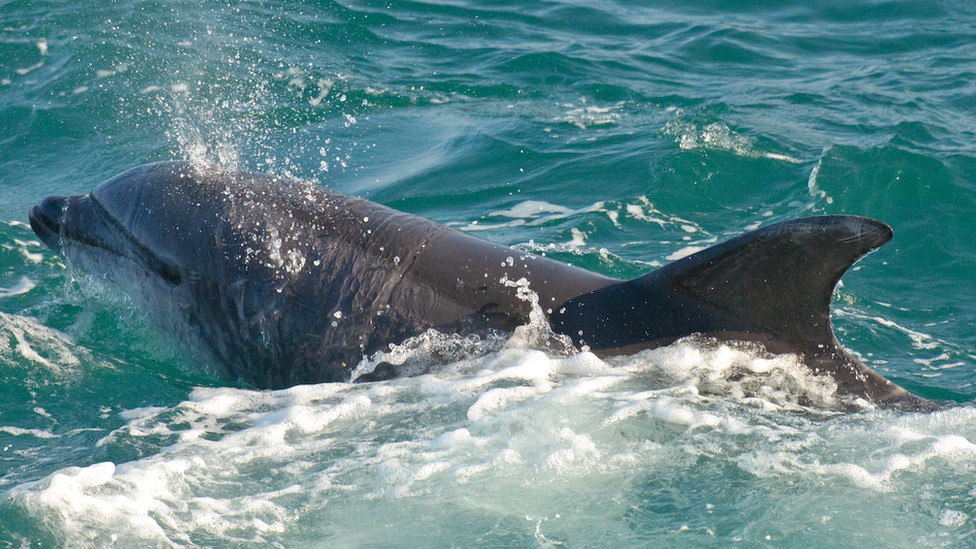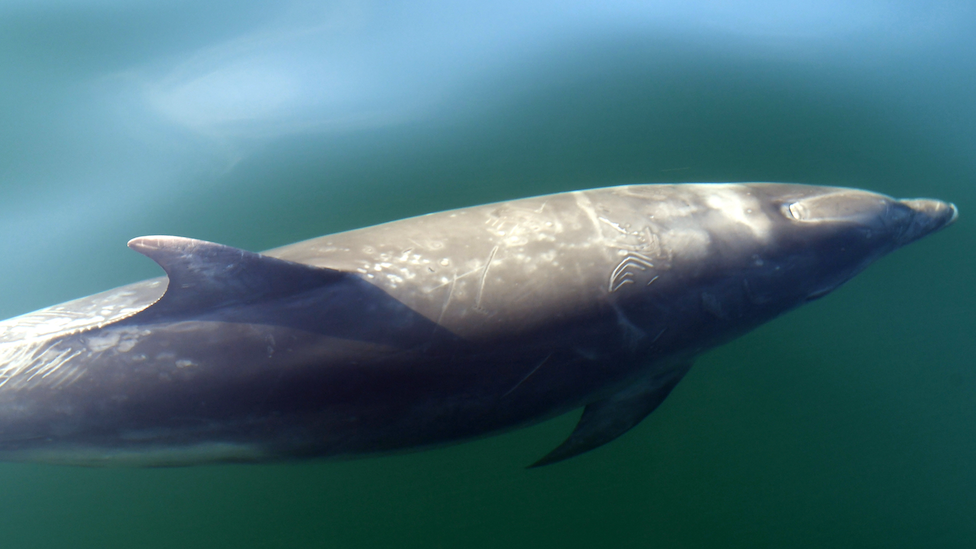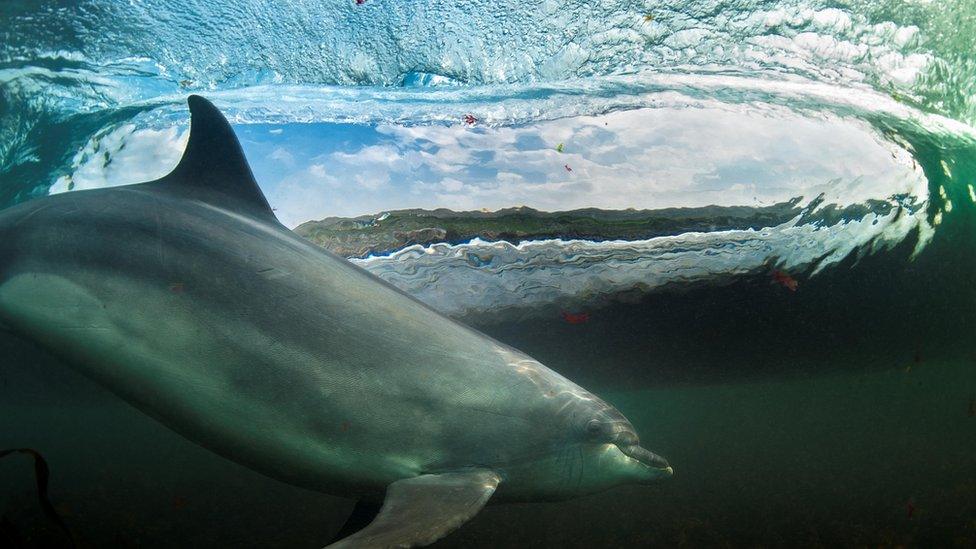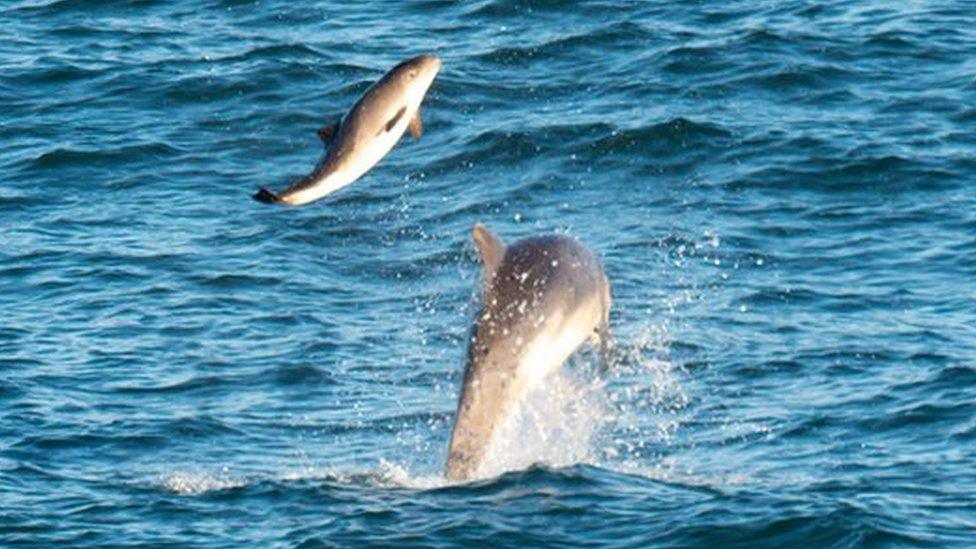England's only bottlenose dolphins at risk, say researchers
- Published

The bottlenose dolphin pod has been seen between North Cornwall and East Sussex
England's only resident bottlenose dolphin pod is at risk from human activity and environmental factors.
The warning comes from the University of Plymouth, Cornwall Wildlife Trust and the South Coast Bottlenose Consortium after a decade of research.
They estimate the dolphin pod currently consists of just 48 individuals.
They now want urgent measures to protect the population and its habitats, or risk the possibility the animals may not survive.
Researchers said the pod's territory off the English Channel coast was known to suffer from repeated and prolonged spells of pollution and fishing pressure.
They added the dolphins' fight for survival was made even more challenging by the fact they inhabit some of the busiest shipping lanes in the world.
'A local tragedy'
Associate Professor of Marine Conservation at the University of Plymouth, Dr Simon Ingram, leads the bottlenose dolphin research project.
He said because dolphins mainly go unseen, people failed to appreciate how vulnerable they were.
"This population lives along one of the most developed and busy coastlines in the world which poses a clear threat to their conservation," he said.
"To see the south coast population decline to extinction would be a local tragedy for the dolphins and for us."

Researchers found the dolphins inhabited some of the busiest shipping lanes in the world
A citizen science network of boat owners, ecotour operators and members of the public, established to pool sightings, revealed that dolphins from this pod travel the coast between North Cornwall and East Sussex.
The team found the population appeared to be isolated with individuals known to socialise within their own pod close to the shore but not with others from other populations normally found in the open sea.
Researcher Shauna Corr added: "Conservation measures to protect these animals have previously been hindered by a lack of knowledge of population size, distribution, and ranging behaviour. Thanks to a citizen science network stretching right along the English Channel and beyond, we can now fill these knowledge gaps."

Follow BBC News South West on X (formerly Twitter), external, Facebook, external and Instagram, external. Send your story ideas to spotlight@bbc.co.uk, external.
Related topics
- Published14 May 2023

- Published14 March 2023
